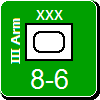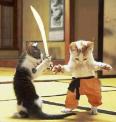Prince of Eckmühl
Posts: 2459
Joined: 6/25/2006
From: Texas
Status: offline

|
IMO, the lack of interest in PTO battlefield games has a lot to do with the nature of the fighting, which is, after all, focused on attrition-warfare. As was the case with WWI, there's an awful lot of "pain for gain" I suspect that players find it frustrating and depressing to bang there head against a proverbial wall. Such a game can have value as a history-lesson, of sorts. Having learned the lesson, however, I don't necessarily want to simulate the event over and over again.
If you contrast that kind of experience with maneuver-warfare, a prime example being the German "blitzkrieg," I believe that you'll find that the psychological impact on most players to be completely different. I can only speak for myself, but I typically don't judge my performance in a game by the victory conditions, alone, but rather by the efficiency with which I played. Indeed, my goal is to accomplish the stated objectives, but I contrive to do so in such a way that minimizes my own losses. Suffice it so say, a careful perusal of the "dead-pile" at the end of the contest is time-honored ritual on my part.
A case in point?
The OP mentioned Bill Wilder's work with Steel Panthers. I remember playing an Okinawa scenario that was simply horrific. The USA had to take a hill that was filled with what I took to be caves. In spite of the fact that the USA force had numerous Sherman AFV, the going was awful. Japanese sappers kept emerging from nowhere and blowing the Shermans up. Even when I won the stupid scenario, I felt freakin' awful afterward. I also realized that I was never going to play that scenario to my satisfaction because the losses were always going to be higher than I thought reasonable or prudent.
Anyway, that's my theory concerning the relative "scarcity of interest" in PTO land-combat among wargamers.
_____________________________
Government is the opiate of the masses.
|
 Printable Version
Printable Version























 New Messages
New Messages No New Messages
No New Messages Hot Topic w/ New Messages
Hot Topic w/ New Messages Hot Topic w/o New Messages
Hot Topic w/o New Messages Locked w/ New Messages
Locked w/ New Messages Locked w/o New Messages
Locked w/o New Messages Post New Thread
Post New Thread